Why were rich peasants called kulaks?
Categories: Society
By Pictolic https://pictolic.com/article/why-were-rich-peasants-called-kulaks.htmlMost of us are sure that wealthy peasants began to be called “kulaks” after the revolution. This is mainly associated with the organization of collective farms and the confiscation of livestock, agricultural equipment and grain from the rich - “dekulakization”. But in fact, this term appeared much earlier, when no one had even heard of the Bolsheviks. True, it had a slightly different meaning.

In pre-revolutionary Russia, in the villages they also called the rich people kulaks. But not at all those who made their fortune through hard work or honest trade. This disdainful title was awarded to moneylenders and resellers, whom no one respected.
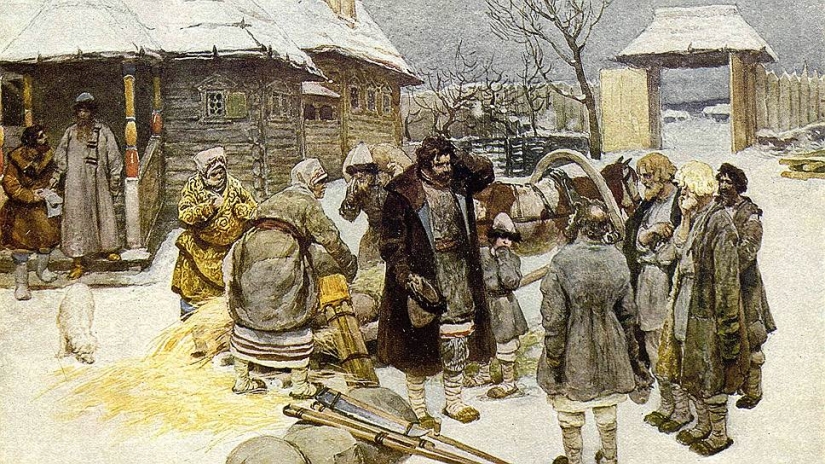
In the mid-19th century, Vladimir Ivanovich Dal, the author of the famous dictionary, wrote about it like this:
The word “kulak” or “kulatchik” was first used back in the 17th century. At the same time, it was not peasants who were called this way, but dishonest townspeople. Then businessmen bought from people who brought their products from villages to the market for the purpose of profitable resale. Of course, in this business there was deception, shortchanges and shortcuts.
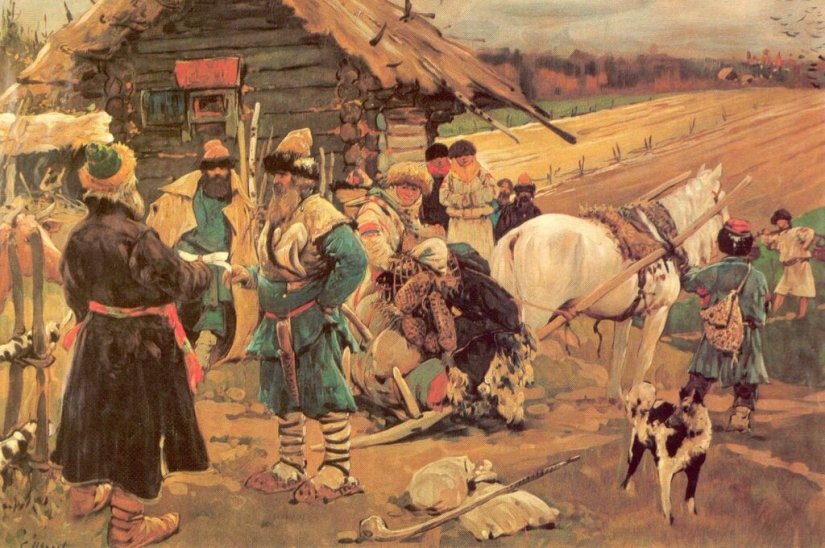
This unpleasant phenomenon, which would be called speculation, harmed the city's economy. In 1694, the Moscow boyars issued a decree “On the prohibition of repurchasing supplies brought to markets by peasants.” Purchasing was prohibited so that “trading visitors and Moscow residents would not suffer any offense or ruin from those buyers and kulaks.” Violators were subjected to fines and corporal punishment, and the most impudent ones were even thrown into prison.
In the villages, those who became rich without working in the fields or doing crafts were called kulaks. These were people who gave loans at interest, bought grain and livestock from those in trouble for the purpose of resale, and rented horses for cultivating the land. The peasants rarely had money, so they paid with part of the harvest, and a considerable one at that.
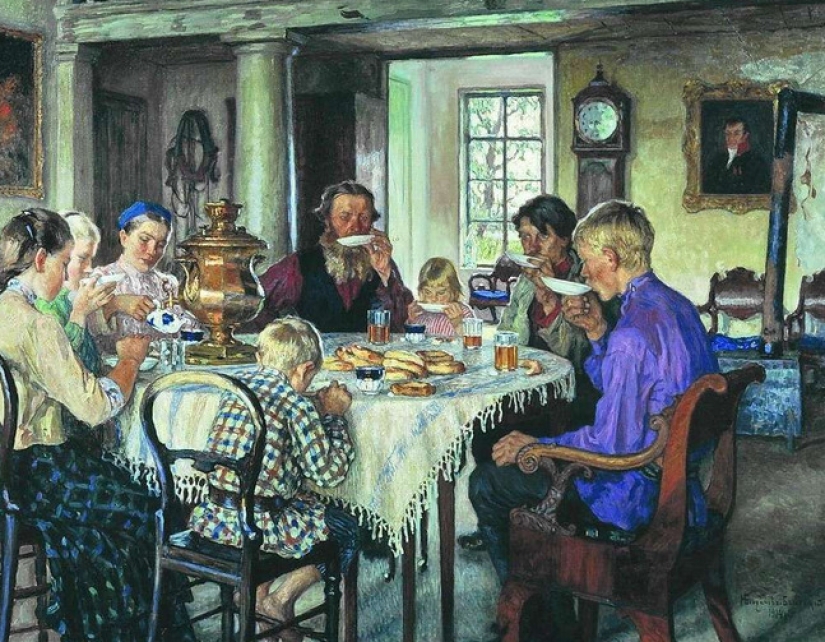
The kulaks, deceiving the peasants, drove them into great debt. Some families, having once borrowed something, fell into bondage and took years to pay off. Sometimes, unable to give back what they had occupied, they worked in the kulak field as farm laborers. They were called kulaks because they kept everyone around them “in their fist.” It also happened that such a rich man dictated his terms even to the elders, essentially gaining complete power over the village.
There is another version of this name. Some linguists believe that “kulak” comes from “kul, kulek” and “kut’at”. That is, in simple terms, a fist is a bagman who fills bins at the expense of others. Perhaps there is an analogy with such a popular phrase as “money bag”.
In literature, the word “fist” was first used by N.V. Gogol in his “Dead Souls”. The main character, Chichikov, used it in relation to the landowner Sobakevich:
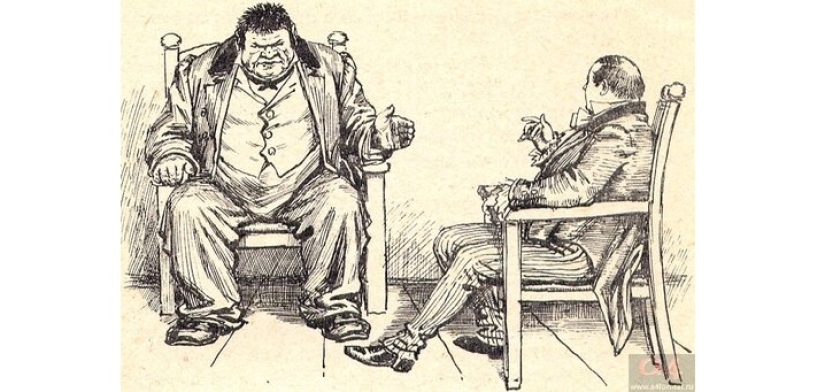
Another Russian classic, M.E. Saltykov-Shchedrin also turned to this image. In the book “Little Things in Life,” the author describes the essence of such a rich man:
The definition of “fist” was to the liking of Bolshevik propagandists. Since 1918, they began to denounce peasants who refused to hand over grain to specially organized points. Representatives of the Soviet government acted treacherously - they forced the peasants to part with their harvest at a ridiculous price.
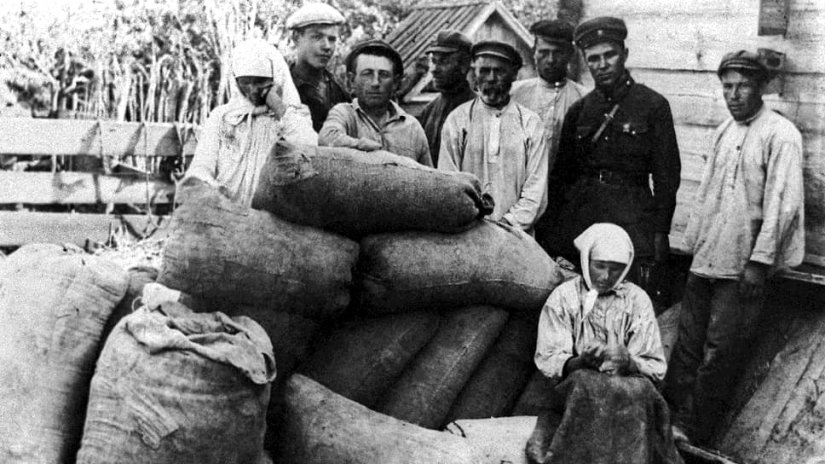
Not only dealers, but generally all peasants disloyal to the Soviet regime began to be called kulaks. At the beginning of the 1920s, they began to talk less about fists and, it seemed, common sense had won. But in 1929, dispossession again became a trend. Now the authorities drove village residents into collective farms and forced them to give up their property.
Those who did not want to run a collective farm or lived in abundance thanks to their labor were equated with resellers and began to be severely persecuted. People recognized as kulaks were deprived of livestock, land, tools and even housing. They were arrested in the thousands and their whole families were sent to Siberia.
If someone was indignant, he was recognized as a “counter-revolutionary kulak asset” and was shot. It is still unknown exactly how many people were subject to “dekulakization.” Some researchers even put the figure at 4 million people. Many of these people were not even wealthy. They were simply denounced by ill-wishers.

The state received great benefits from the fight against the kulaks. When the family of the “world-eater” was sent in a freight car to a camp or settlement, all his property was taken away. The fist itself became free labor in logging sites, construction sites and mines.
The fight against the kulaks destroyed the peasantry as a class. Once on the collective farm, villagers lost the incentive to work, because the lion's share of the fruits of their labor went to the state.
Recent articles

It's high time to admit that this whole hipster idea has gone too far. The concept has become so popular that even restaurants have ...

There is a perception that people only use 10% of their brain potential. But the heroes of our review, apparently, found a way to ...

New Year's is a time to surprise and delight loved ones not only with gifts but also with a unique presentation of the holiday ...